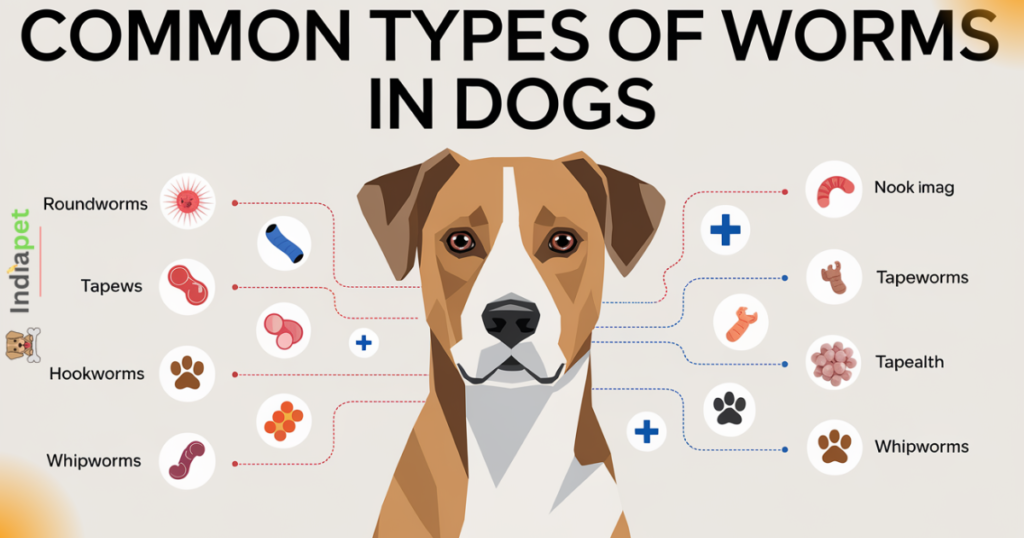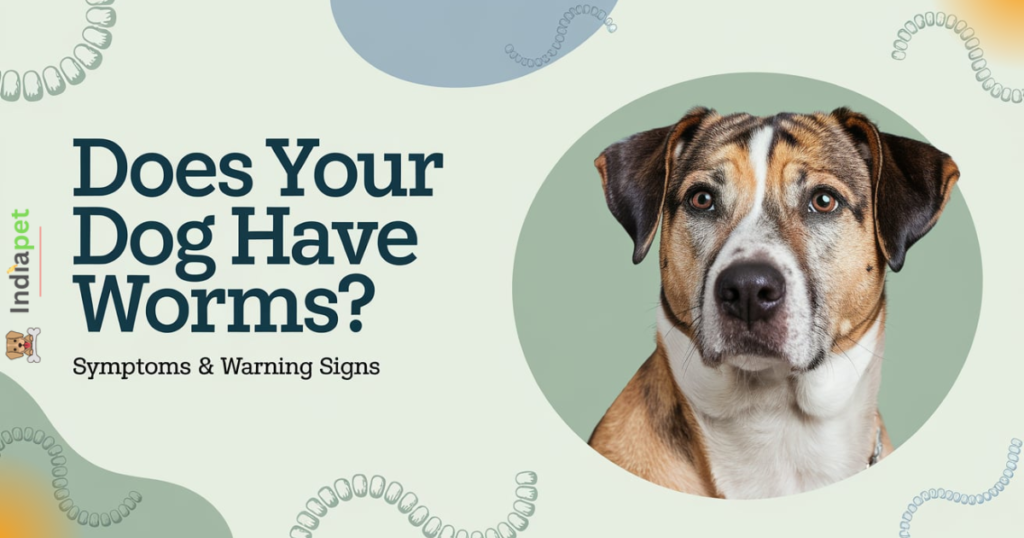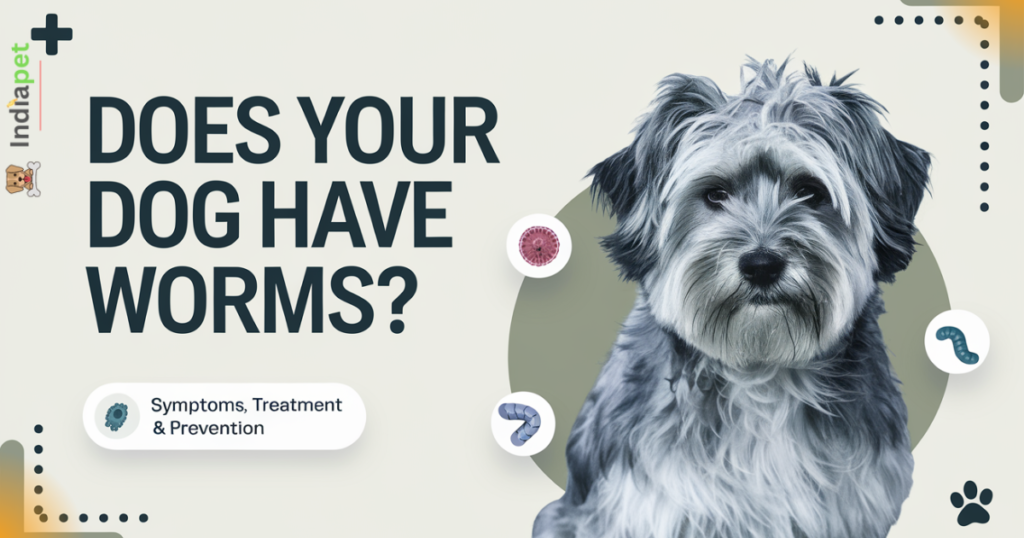Are you looking to know How do i know if my Dog has Worms:- Symptoms, Treatment, & Prevention: Then, you will land on the perfect website.
Recently, your pet has been acting weirder, or maybe he does not want to play as before, and the belly appears a bit rounder than before. These little changes might be warnings that your dog has some unwanted guests inside their systems-worms.
Now, let’s check some of the signs that may mean your four-legged friend needs help in getting rid of these little villains.
Common types of worms
Several species of worms might infect a dog in the gastrointestinal system or elsewhere in the body. Generally, the most common ones are roundworms. These are microscopic, looking like tiny strands of spaghetti. Tapeworms fragment into small grains that may pass in the stool of your dog or around the rear end.
Although hookworms are microscopic and almost invisible, each second taking the blood of your dog might be a serious consequence. The whipworm that hosts in the large intestine might look very ill while it is still going inside the dog. The worst is the heartworm, which dials at the heart of your dog and, if not treated, can kill your dog.

There are few Dog has Worms names are listed:-
- Vomiting
- Diarrhea
- Weight loss
- Swollen abdomen
- Increased appetite
- Cough
- Lethargy
- Scooting
- Worms in vomited material
- Blood in stool
- Dull coat
- Tapeworm symptoms in dogs
- Visible worms
- Weakness
- Dull fur or hair
- Distended abdomen
- Excessively licking or biting anal area
- Pot-bellied appearance
- Potbelly
- Anemia
- Changes in coat condition
- Inflamed rectum
- Malnourishment
- Your pet is lethargic
How Do You Know Your Dog Has Worms?
Some signs of worms may be obvious, while others are not that so. One of the most obvious was when one could literally see the worms inside the stool or vomit of a dog. If, in near proximity to your dog’s anus, you found small white particles resembling rice grains, it could be an indicator of tapeworms.
Another is a swollen belly, especially in puppies. This happens purely and simply because worms take up space inside your dog’s belly. They may eat and still lose weight because the worms are stealing nutrients from your dog.
Monitor stool production. Diarrhoea or constipation can be indicative of worms; they’re making a ruckus in their innards, which may be causing it. Some can also vomit profusely. If your dog scoots the bottom and drags it on the floor, chances are that worms might be itchy for them.
For example, weary dogs harbour worms. Once such parasites begin to siphon or feed on your dog’s blood, then your dog will be rather lazy to play and run around. A sudden onset of chronic coughing in your dog, especially one that your dog has never had a challenge with a cough, might be symptomatic of heartworms.
Knowing if Your Dog Has Worms
An essential diagnosis done on your dog will be worms by studying a small sample of your dog’s feces under a microscope. The eggs are tested for various kinds of worms. Testing for heartworms will require just a small amount of blood to be taken from the dog.
He may also palpitate the belly of your dog to see if it is swollen or tender. He will ask if anything in your dog’s eating, exercise, and bathroom habits has changed. All this gives the vet an idea of what kind of worms might be causing the problem.

Removing Worms
Once you are aware of the type of worms your dog has, it is quite simple to get rid of them. Your vet would prescribe dewormer for your dog. Since the medicines vary for different kinds of worms, proper medicine has to be prescribed in each case.
Most dewormers kill the worms rather quickly. However, your dog will frequently require a repeat dose several weeks later. This ensures that all of the worms are dead, including some that may have hatched from eggs passed in the stool since the first dose.
Other more natural remedies are pumpkin seeds or garlic. These may prevent worms from entering the body but will not remove an infestation. Any medication that you’ll use for deworming should be prescribed by your vet, so:
Of course, after treating for worms, you do not want them to return. Waste from your dog needs to be cleaned up immediately so eggs of worms are not dispersed around the yard. Wash your hands after petting your dog or cleaning up after your dog.
Regular preventive medicine will keep your dog from getting re-infected with worms. Your veterinarian will be able to advise you on what best fits you and your dog based on your location and your dog’s lifestyle. Regular veterinary check-ups ensure any worm infestation will have been nipped before complications become serious.
Final Words
These small worms are no challenge at all for a dog but, in no way, a major nuisance with these insignificant pests. Warning signs such as change in energy, alteration of appetite, or changes in bathroom habits provide an improvement in the early detection of worm problems.
Your vet will make quick work of getting your dog back to his or herself with fast treatment. Prevention is the best cure, after all. Regular checkups and preventive medicine will keep your furry friend happy, healthy, and worm-free. Your dog’s counting on you to realise that something’s amiss. So listen for these warning signs and seek veterinary care now if you see or hear any of these problems.


